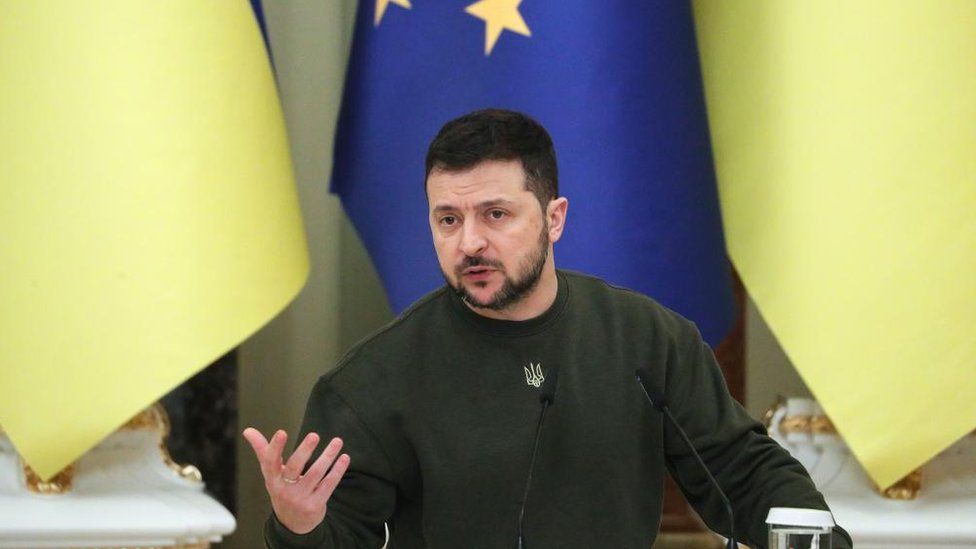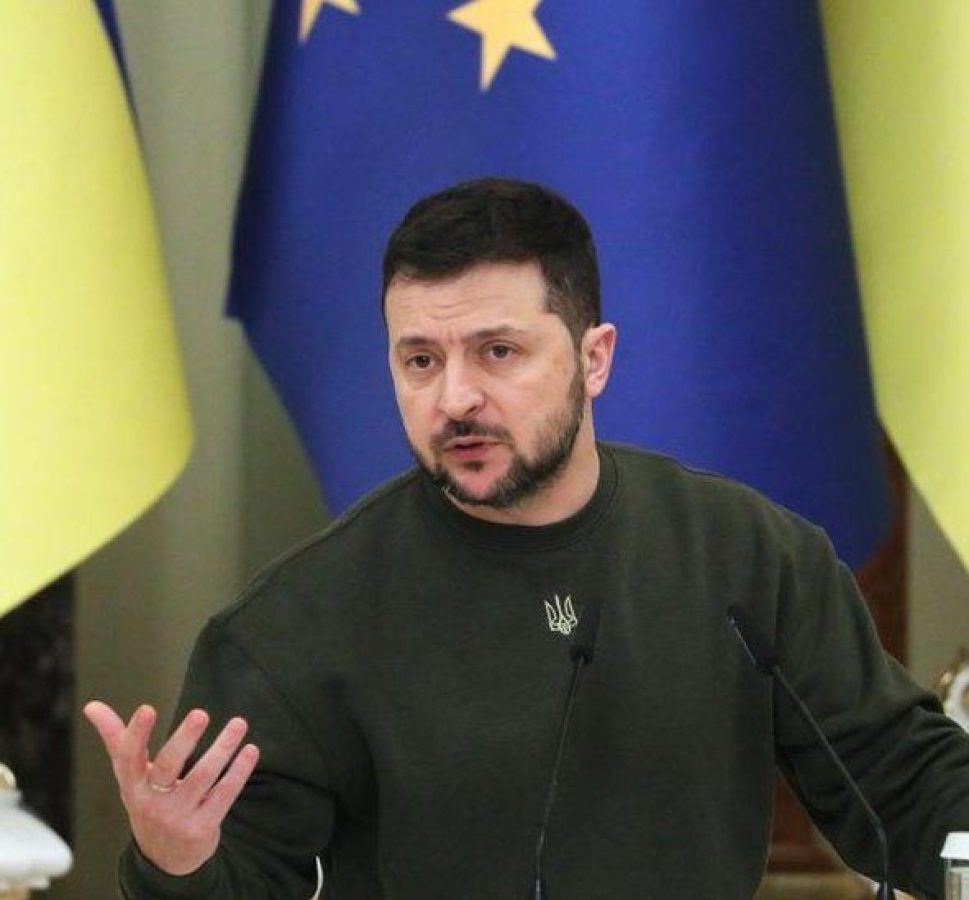
Ukrainian leader seeks help intercepting Russian missiles, saying situation on the battlefield is ‘one of the most difficult’ since 2022 invasion.
Ukraine’s President Volodymyr Zelenskyy has said he is pushing partners to get more directly involved in the war by helping to intercept Russian missiles and allowing his country to use Western weapons against military equipment amassing near the border.
“It’s a question of will, but everyone says a word that sounds the same in every language: everyone is scared of escalation,” the 46-year-old leader told the Reuters news agency in Kyiv on Monday.
“Everyone has gotten used to the fact that Ukrainians are dying – that’s not escalation for people,” he said.
Zelenskyy proposed that the armed forces of neighbouring NATO countries could intercept incoming Russian missiles over Ukrainian territory to help Ukraine protect itself.
Russia has fired thousands of missiles and drones at Ukraine since the start of its invasion in 2022 and launched an assault in the northeastern border region of Kharkiv on May 10 that resulted in their biggest territorial gains in a year and a half.
“Russians are using 300 planes on the territory of Ukraine. We need at least 120-130 planes to resist in the sky,” Zelenskyy said, again calling on Western allies to supply with additional air defence systems. Ukraine is waiting for the delivery of US-designed F-16 fighter jets.
He said if countries could not supply the planes straight away, they could still fly them from neighbouring NATO states and shoot down Russian missiles.
Ukraine was also negotiating with international partners to use their weapons to strike Russian military hardware at the border and further inside Russian territory, Zelenskyy said.
“So far, there is nothing positive,” he said.
On Tuesday, German Foreign Minister Annalena Baerbock arrived in Kyiv and called for more international support for Ukraine’s air defences.
Germany is among several NATO allies that have ruled out sending ground troops to Ukraine after French President Emmanuel Macron said he would not rule it out.
Stretched defences
Zelenskyy said the situation on the battlefield was “one of the most difficult” he had known since the start of Russia’s full-scale invasion in February 2022.
In recent weeks, Moscow’s troops have made incursions into northeastern Ukraine, further testing Ukraine’s already stretched defences. At the same time, Russia has taken territory in the eastern Donbas region in sometimes fierce battles.
“A very powerful wave [of fighting] is going on in Donbas … No one even notices that there are actually more battles in the east of the country, specifically in the Donbas direction: Kurakhove, Pokrovsk, Chasiv Yar,” Zelenskyy said.
He added, however, that the situation north of Kharkiv was now “under control”.
Russia’s push in the Kharkiv region with assaults in the areas of Vovchansk and Lyptsi forced Ukraine to send in reinforcements – stretching its troops along the more than 1,000km (600-mile) front line in the east and the south.
On Tuesday, Ukraine’s air force said it shot down 28 out of 29 drones used by Russian forces in an overnight attack on seven regions, including Kharkiv, Dnipropetrovsk and Kherson.
The drone attack damaged four private residences, 25 trucks and buses in Kharkiv, injuring five people, according to the region’s Governor Oleh Syniehubov and the Ukrainian Ministry of Internal Affairs’ statements on the Telegram messaging app.
Ukraine’s general staff said earlier its forces had repelled Russian attacks near Starytsia, a village about 5km (3.1 miles) from the border with Russia.
Kharkiv region’s Deputy Governor Roman Semenukha said on national television on Monday that local authorities had evacuated about 10,500 people from the border areas since May 10.
Zelenskyy has not contested elections because of martial law imposed due to the invasion.
Reporting from Kyiv, Al Jazeera’s John Holman said few question his ongoing legitimacy and he remains popular.
“Although lower than before, his approval rating’s still above 60 percent,” he said.
Many Ukrainians also feel an election would be unrealistic and disrupt the war effort.
“In a poll this March, 78 percent of those asked said they were against elections before the end of the war. But in addition to that there’s also the practical difficulties,” he said.
“Some Ukrainian towns are in ruins. Many power plants have been hit so there’s rolling blackouts. And perhaps most importantly, there’s 8 million people displaced, 5 million outside the country,” Holman added.






